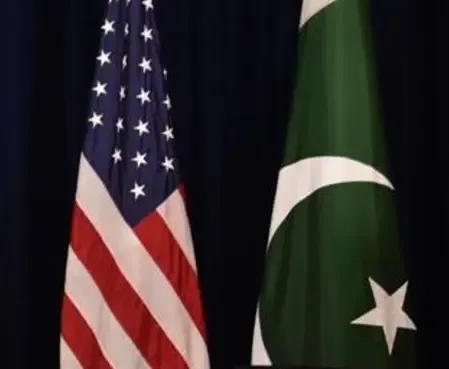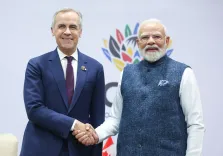Is Trump’s Pakistan Policy Overlooking Costly Pitfalls Ahead?

Synopsis
Key Takeaways
- Trump's oil partnership with Pakistan may face significant challenges.
- Historical failures of oil exploration in Pakistan raise concerns.
- Balochistan is a region fraught with ethnic and political tensions.
- Pakistan relies heavily on oil imports, with limited domestic production.
- US involvement could escalate local unrest and geopolitical tensions.
New Delhi, Aug 20 (NationPress) The recent announcement by US President Donald Trump regarding a partnership with Pakistan for oil exploration and mining is deemed an "unforced error" that could lead to significant financial losses. Historical attempts to identify oil reserves in Pakistan have consistently failed to produce tangible results, as pointed out in a recent article.
"By agreeing to assist in oil extraction, Trump is continuing his pragmatic maneuvering in the region. However, this decision ignores the potential strategic challenges that may arise. While Balochistan is recognized as a key source of natural gas in Pakistan, the search for oil in the province has historically been fruitless. Islamabad has frequently cited speculative evaluations suggesting the presence of billions of barrels of untapped oil within its borders and adjacent waters, but each assertion has ultimately been disproven through unsuccessful drilling attempts," states Marcus Andreopoulos in an article published by Inkstick.
The article further highlights that the recent surge in violence against Chinese workers and infrastructure projects in Pakistan over the past three years should act as a cautionary signal against increased US involvement in the region.
Islamabad, for its part, is eager for President Trump to overlook such concerns and redirect much-needed American investment into the country, regardless of whether Washington sees any returns on its investment.
Other analysts find Trump's fascination with Pakistan's purported "massive oil reserves" puzzling, given that the nation’s crude oil reserves are estimated between 234 and 353 million barrels, ranking it around 50th in the world. Pakistan relies heavily on imports to satisfy its oil requirements, including imports from the US.
Even in the event of successful oil extraction, particularly in Balochistan, the ramifications could be destabilizing. The region has long been a center of ethnic and political strife, intensified by perceptions of foreign exploitation. China's significant presence in the area through the China-Pakistan Economic Corridor (CPEC) has already incited discontent. US involvement in resource extraction could further alienate local communities and entangle Washington in an unstable domestic conflict.
Balochistan is strategically important to the US as a potential observation point for monitoring Iran. Nevertheless, using the province for geopolitical leverage poses the risk of heightening tensions in a region characterized by strong anti-Western sentiment.
According to Worldometer data, Pakistan’s proven oil reserves stood at 353.5 million barrels as of 2016, ranking it 52nd globally and accounting for a mere 0.021 percent of global reserves.
With current consumption at approximately 556,000 barrels per day, these reserves would only last less than two years of domestic demand if the country ceased imports, as per Worldometer data.
Daily oil production hovers around 70,000 to 80,000 barrels, fulfilling only about 15 to 20 percent of its consumption needs.
An official from the Indian Oil Corporation noted that petrol prices in Pakistan are currently Rs 272.15 per litre, with high-speed diesel priced at Rs 284.35 per litre, both of which are more than double the prices in India. These rates rank among the highest globally and reflect the nation's significant reliance on imports.
The success rate for oil exploration is exceedingly low, with political, financial, and security issues posing major concerns for investors. Additionally, Pakistan's refining capacity is limited and aging, the Indian Oil official added.









